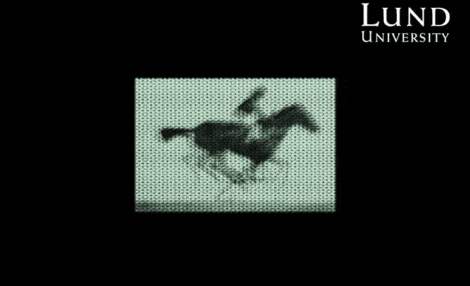We all love our Slo-Mo video collections and high frame-rate photography, and it is integral in studying and analyzing the phenomenon that occurs within the blink of an eye. For that purpose, there has been a constant race to create the highest performing camera, with the last advent in this regard being the 4.4 trillion frames per second shooting camera. Now the researchers at Lund University have done one better, as they have created the fastest high-speed camera yet that can capture an astonishing 5 trillion frames every second.
This is fast enough to visualize the movement of light, which was thought to be impossible before. The camera can be seen in action in the video below, which has been slowed down by a factor of one trillion. The video captures a pulse of light traveling roughly an A4 sheet of paper. But unlike traditional footage that captures images sequentially, the team at Lund have created algorithms to capture multiple images at a time that are then sorted into a sequence afterward.
The technology is called Frequency Recognition Algorithm for Multiple Exposures (FRAME) which works by flashing coded light that acts as an encryption. The camera shoots different “codes” having varying light flashes simultaneously, which bounce off the object and return with their unique codes allowing the camera to assemble a sequence from a single frame.

The camera will be a godsend for the scientific community who can now record the physical and biological phenomenon as short as 0.2 trillionths of a second, as recognized by Lund University. They promise an improvement in everything from telecommunications, to the processor power of our laptops.
Exciting times!


